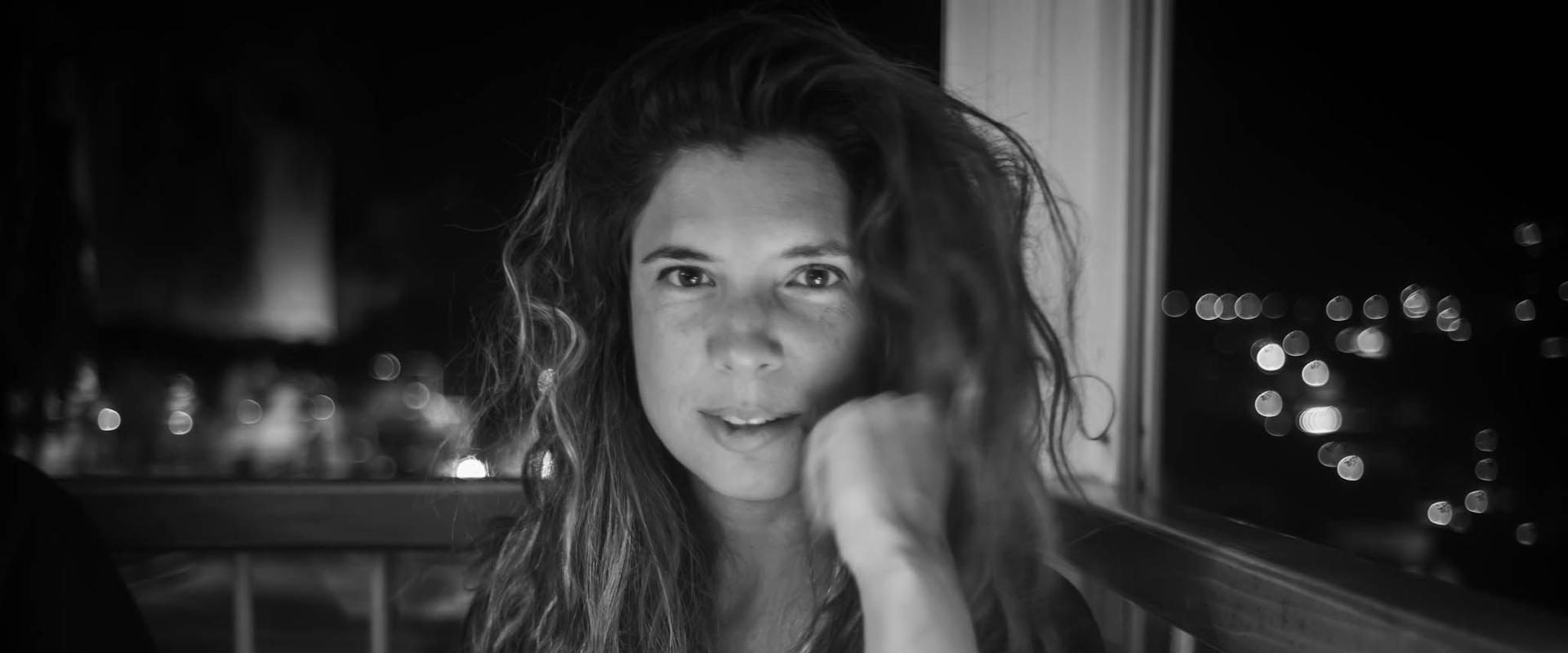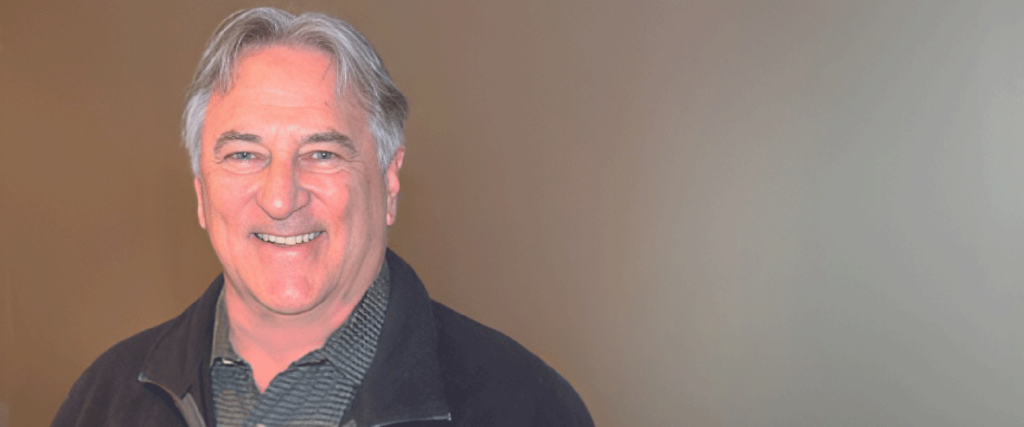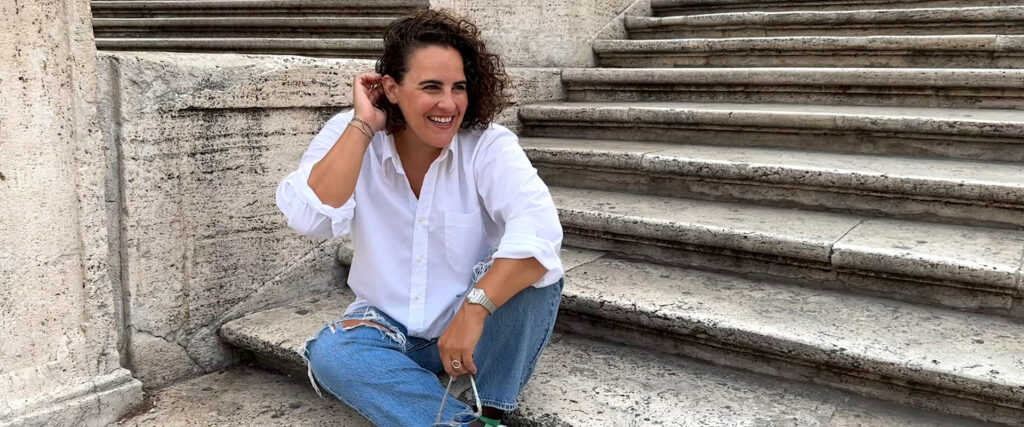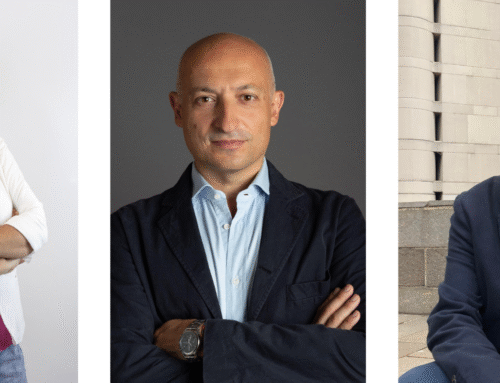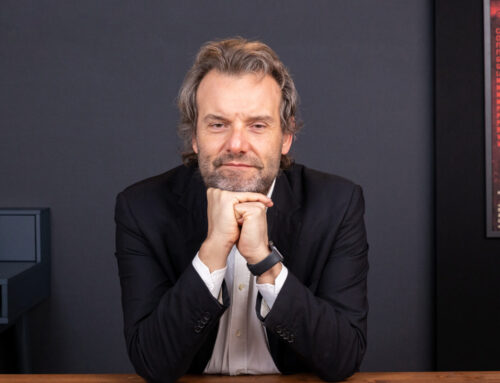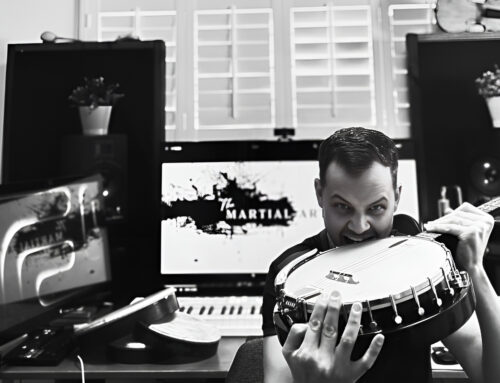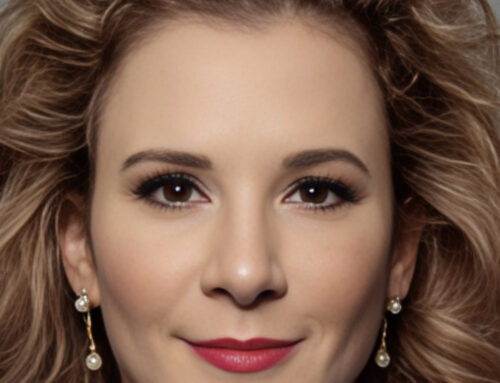Guja Quaranta: A Life Between Hollywood and Italy
A Journey from Creative Roots to International Productions
Guja Quaranta just returned to Los Angeles after a shoot. An experienced producer in film, theatre, television, and advertising, she knows the ins and outs of packing and unpacking, always ready to follow the sets she’s working on. With a life that spans both sides of the Atlantic—Hollywood, where she chose to live, and Italy, where her family resides—Quaranta was born in 1982. Coming from a family of artists, she started her career in short films and animation before moving on to large international projects with big budgets and critical acclaim. Some of her notable works include the Showtime/Netflix limited series Ripley, The Equalizer 3 directed by Antoine Fuqua and starring Denzel Washington, and Zoolander 2 directed by and starring Ben Stiller for Paramount Pictures.
You worked as an Associate Producer on Ripley, which has received 13 Emmy nominations. Shortly after, you worked on The Equalizer 3. Both projects were filmed in Italy. Can you tell us how it all started for you?
We shot The Equalizer 3 after Ripley, but as you can imagine, Ripley‘s post-production took a long time. Those three years in Italy were amazing for me; I got to work on international projects in stunning locations with an incredible crew. You can’t ask for more! I was born in New York and grew up between Italy and New York. I always say I have an Italian heart and an American mind. I need both cultures and both worlds. Los Angeles became my adopted center of gravity when I started producing.
I was born into a creative family. My father is a production designer who won an Oscar for A Room with a View, and my mother is a costume designer for beautiful operas. I’ve always been envious of those who remember “that moment” of discovery when they knew they wanted to be in the film industry. I never had that moment myself, as I essentially grew up immersed in it, but I’m grateful for the creative environment I was raised in.
Clayton Townsend, the Executive Producer of Ripley, whom I had worked with previously, contacted me to join the production. After finishing that show, we moved on to The Equalizer 3. Both were incredibly challenging and rewarding, offering the chance to collaborate with talented artists.
You’ve just returned from a long production abroad. What was it about?
It’s the new movie by Fast and Furious director Justin Lin. It’s based on the true story of American Christian missionary John Allen Chau, who was killed by an uncontacted tribe on North Sentinel Island in 2018 while attempting to preach to them. Our story delves into his past and family relationships. We filmed in various locations around the world, mainly in Thailand, where we had a wonderful experience with the local crew.
These projects start in Hollywood but are filmed abroad. Why is that? Besides the story they tell, are there production reasons behind this choice?
Yes, Hollywood is the hub where most productions begin, providing creative and financial backing. Filming abroad often has to do with scenery but more so with financial considerations. Countries like Italy offer significant tax incentives, making them attractive for their cost-effectiveness and rich cultural experience. Who wouldn’t want to come to Italy?
It’s widely reported that Hollywood is in crisis: little work, little money, little help from the state. Is this your perception as well? What’s happening?
Yes, that’s accurate. Between COVID and last year’s labor strikes, production has been at a standstill. Only now are productions slowly resuming. But Los Angeles has a big problem: California’s incentives are hard to obtain and not as advantageous as those in other countries.
You’ve worked both in cinema and for series intended for streaming. What do you prefer? What are the differences in your work?
Both mediums have their pros and cons. I like how TV series can explore a subject in greater depth, but they take much longer to produce.
According to the Geena Davis Institute, which tracks female representation in the North American entertainment industry, only 19% of producers are women. How does this statistic reflect your experience?
Sadly, this statistic doesn’t surprise me. There’s still a bias in the industry; often, I’m the only woman in production meetings. The industry has been male-dominated since its foundation, and while the playing field is leveling, it’s taking time.
Returning to Ripley: the series started with Showtime and then Netflix took over. What happened? Did Netflix give you free rein or set boundaries?
Netflix joined during post-production and has been very supportive of Steve Zaillian’s vision. Showtime was a great partner during filming.
The series is visually striking, partly due to bold choices like filming in black and white. Is there room in today’s industry for auteur cinema or series?
I hope Ripley serves as an example to open doors for more auteur-driven projects. The audience and critical response to our show prove there’s a place for this kind of work. And now, fingers crossed for the Emmy Awards!
Share:
A Journey from Creative Roots to International Productions
Guja Quaranta just returned to Los Angeles after a shoot. An experienced producer in film, theatre, television, and advertising, she knows the ins and outs of packing and unpacking, always ready to follow the sets she’s working on. With a life that spans both sides of the Atlantic—Hollywood, where she chose to live, and Italy, where her family resides—Quaranta was born in 1982. Coming from a family of artists, she started her career in short films and animation before moving on to large international projects with big budgets and critical acclaim. Some of her notable works include the Showtime/Netflix limited series Ripley, The Equalizer 3 directed by Antoine Fuqua and starring Denzel Washington, and Zoolander 2 directed by and starring Ben Stiller for Paramount Pictures.
You worked as an Associate Producer on Ripley, which has received 13 Emmy nominations. Shortly after, you worked on The Equalizer 3. Both projects were filmed in Italy. Can you tell us how it all started for you?
We shot The Equalizer 3 after Ripley, but as you can imagine, Ripley‘s post-production took a long time. Those three years in Italy were amazing for me; I got to work on international projects in stunning locations with an incredible crew. You can’t ask for more! I was born in New York and grew up between Italy and New York. I always say I have an Italian heart and an American mind. I need both cultures and both worlds. Los Angeles became my adopted center of gravity when I started producing.
I was born into a creative family. My father is a production designer who won an Oscar for A Room with a View, and my mother is a costume designer for beautiful operas. I’ve always been envious of those who remember “that moment” of discovery when they knew they wanted to be in the film industry. I never had that moment myself, as I essentially grew up immersed in it, but I’m grateful for the creative environment I was raised in.
Clayton Townsend, the Executive Producer of Ripley, whom I had worked with previously, contacted me to join the production. After finishing that show, we moved on to The Equalizer 3. Both were incredibly challenging and rewarding, offering the chance to collaborate with talented artists.
You’ve just returned from a long production abroad. What was it about?
It’s the new movie by Fast and Furious director Justin Lin. It’s based on the true story of American Christian missionary John Allen Chau, who was killed by an uncontacted tribe on North Sentinel Island in 2018 while attempting to preach to them. Our story delves into his past and family relationships. We filmed in various locations around the world, mainly in Thailand, where we had a wonderful experience with the local crew.
These projects start in Hollywood but are filmed abroad. Why is that? Besides the story they tell, are there production reasons behind this choice?
Yes, Hollywood is the hub where most productions begin, providing creative and financial backing. Filming abroad often has to do with scenery but more so with financial considerations. Countries like Italy offer significant tax incentives, making them attractive for their cost-effectiveness and rich cultural experience. Who wouldn’t want to come to Italy?
It’s widely reported that Hollywood is in crisis: little work, little money, little help from the state. Is this your perception as well? What’s happening?
Yes, that’s accurate. Between COVID and last year’s labor strikes, production has been at a standstill. Only now are productions slowly resuming. But Los Angeles has a big problem: California’s incentives are hard to obtain and not as advantageous as those in other countries.
You’ve worked both in cinema and for series intended for streaming. What do you prefer? What are the differences in your work?
Both mediums have their pros and cons. I like how TV series can explore a subject in greater depth, but they take much longer to produce.
According to the Geena Davis Institute, which tracks female representation in the North American entertainment industry, only 19% of producers are women. How does this statistic reflect your experience?
Sadly, this statistic doesn’t surprise me. There’s still a bias in the industry; often, I’m the only woman in production meetings. The industry has been male-dominated since its foundation, and while the playing field is leveling, it’s taking time.
Returning to Ripley: the series started with Showtime and then Netflix took over. What happened? Did Netflix give you free rein or set boundaries?
Netflix joined during post-production and has been very supportive of Steve Zaillian’s vision. Showtime was a great partner during filming.
The series is visually striking, partly due to bold choices like filming in black and white. Is there room in today’s industry for auteur cinema or series?
I hope Ripley serves as an example to open doors for more auteur-driven projects. The audience and critical response to our show prove there’s a place for this kind of work. And now, fingers crossed for the Emmy Awards!

